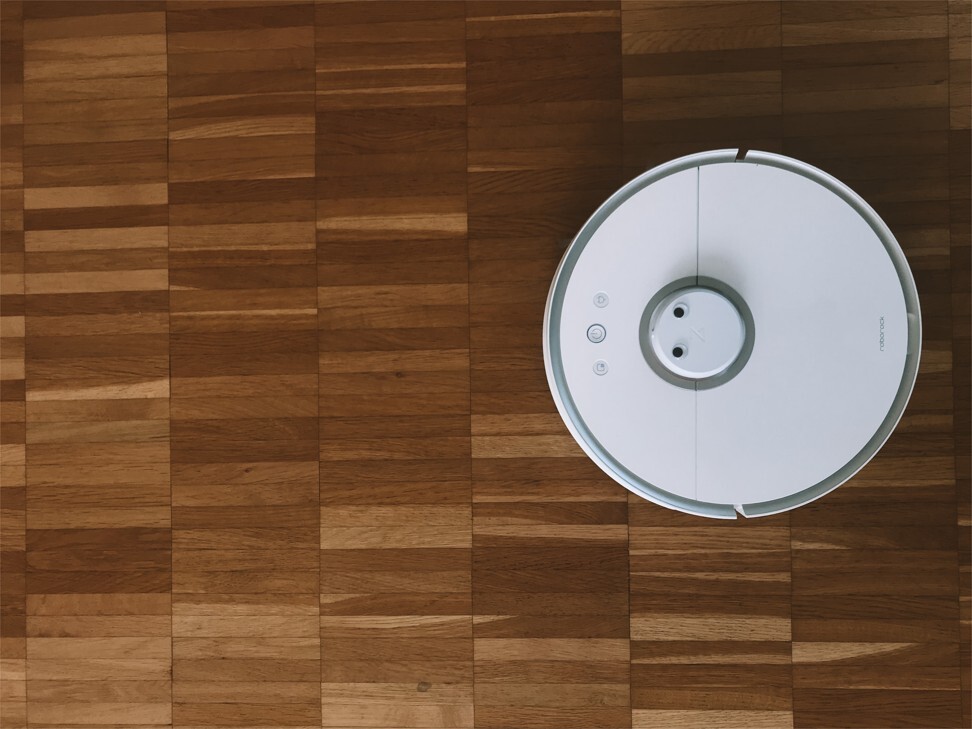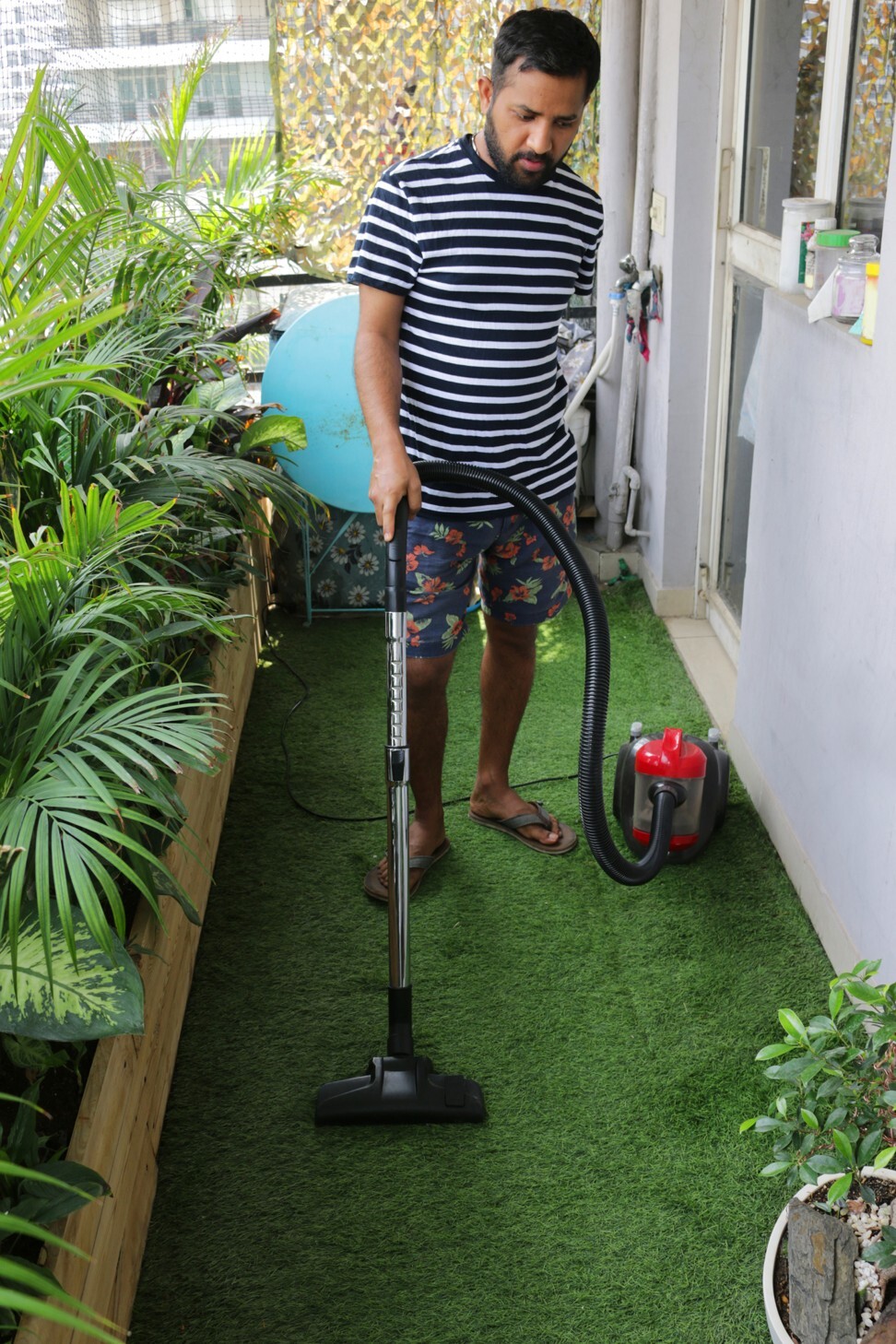
India’s domestic workers face tough times as home appliances and smart cleaning gadgets replace them
- From robotic vacuum cleaners to dishwashers and Dysons, tech is helping a number of Indian families with chores since the pandemic began
- But many domestic workers who have lost their jobs to such appliances are struggling to make ends meet

Shoma Abhyankar is one of millions of Indians who turned to electric and electronic appliances during the Covid-19 pandemic to fill a housework gap left by limiting contact with domestic workers. The takeover by gadgets and machines could have lasting consequences, changing the face of domestic work across the nation.
Abhyankar, 45, an independent writer from the western city of Pune who lives with her husband and daughter, has used a robotic vacuum cleaner since a pandemic lockdown was announced in India in March 2020. Dispensing with her housekeeper’s services, she began doing the household chores herself. She says she is finding the work easy to manage.
“I use the robotic vacuum cleaner on alternate days and, with the dishwasher and the washer, my daily chores are taken care of, and now I am having second thoughts about asking my maid to resume work,” she says.
Many millions of families in India employ domestic workers on a part-time basis, where the worker lives elsewhere and travels to different homes, often four or five, on a regular basis. It’s a working system that has been the norm for decades.

Now, that seems to be changing – at speed – with the Covid-19 pandemic fostering a housework revolution in many Indian homes. Hampering movement across cities, the outbreak left families fearful of germs and intent on limiting contact with the world outside their homes. Even now, with people allowed to move freely again, fear of disease remains a powerful motivation.
Starting on March 22 last year, the pandemic lockdown in India was extended three times until May 31, with different schedules in different places. The long weeks of restricted movement took a toll.
“Even after the lockdown was lifted in India, many people, for fear of coronavirus, did not allow domestic workers into their homes,” says Rishab Giria of Girias, an electronics retailer with 85 shops in 30 Indian cities. “Because of that, the demand for robots, dishwashers and washing machines skyrocketed. Even today … months after reopening our stores, there is still a huge demand for dishwashers.”
Annapurna Chivukula, 49, a freelance baker from the southern city of Bangalore, says her family stopped employing a domestic worker when the lockdown began and they might not go back to their old ways of doing things.
“My husband is crazy about gadgets and loves to experiment and experience the ease of taking advantage of the benefits that technology can offer,” she says.
Chivukula and her husband live with his parents and their children, who are both away at college but return for holidays. She uses a robotic vacuum cleaner, a dishwasher, a washing machine and various other gadgets to stay on top of the housework. She says her husband helps with the chores when he has time.

Vinita Walia Dhingra, 42, a homemaker from Hyderabad, also in the south, stopped employing a domestic worker in March. Since then she has acquired a robotic vacuum cleaner and a dishwasher to help her with the household cleaning. Her husband and their two daughters, aged 13 and 18, also chip in.
“I am pretty happy, as my daily cleaning is taken care of, and my husband and daughters help out with other chores. I haven’t yet thought of calling back my maid,” she says.
Ramya Srinivasan, 40, a freelance tech writer who lives with her husband, her mother and her 11-year-old son in Bangalore, has learned to make the most of housework technology since the lockdown began, using a dishwasher, a washing machine and other gadgets to ease the work of household chores.
“The Dyson vacuum cleaner is a new acquisition since the lockdown, and I am managing quite well with this lifestyle and I might even get used to it,” she says.

With Indian families everywhere dispensing with human household assistance, sales of gadgets to help with chores around the home have soared across the nation, with retailers revelling in booming profits.
R. Srinivas, a manager at a Voltas appliances store in Hyderabad, says sales of appliances like washers and dishwashers have shot up by 30 per cent since the lockdown began. “The market has seen a steep rise in the sale of washers and dishwashers across all brands,” he adds.
Meanwhile, Milagrow, a manufacturer of robotic appliances in India, has sold 15 to 20 times as many machines that can replace humans for housework since the pandemic began, says company founder and chairman Rajeev Karwal. The demand for floor cleaning robots, particularly, has increased sharply.
“We have seen the market exploding for robots. We have grown by over 400 per cent this year,” Karwal says. “With sales of 300,000 floor cleaning robots, India’s market is about 10 per cent the size of China’s market. The Indian market mirrors the China market with a lag of five years. I have seen the same for the colour television segment and washing machines. This year dishwashers and robotic vacuum cleaners have also gone through the roof.”
During the lockdown, my husband didn’t have any work, and even a couple of my employers stopped me from coming to work. It was a very difficult period
A sales manager at a popular electronics showroom in Hyderabad, who asked to remain anonymous, says the sale of dishwashers increased by 500 per cent during the lockdown, and there was now a long waiting list to buy them. “We have seen a rush of sales on home appliances; dishwashers were in huge demand,” he says.
Although many wealthier Indian households have adjusted to the absence of domestic cleaners, the workers themselves have suffered greatly. India’s Domestic Workers Sector Skill Council surveyed 200 people across eight states of India in May 2020 and the findings were grim.
Some 30 per cent said they had no money because they couldn’t collect their wages during the lockdown; 38 per cent were running short of food because they had no cash and couldn’t travel; 96 per cent said they were not working; and 85 per cent said that they had not been paid by their employers – although the Indian government had said all domestic workers should be paid during the lockdown. Meanwhile, the survey found as many as 98.5 per cent of participants understood the precautions needed to stay safe during the pandemic.
Official figures suggest more than 4 million Indians were employed as domestic workers before the pandemic, but the number is widely believed to be an underestimate.

According to a study titled “A History of Prejudice: Covid-19 and Domestic Work in India”, published in June 2020 by researcher Akanksha Khullar from the Institute of Peace and Conflict Studies, anecdotal evidence suggests “many domestic workers have been abruptly dismissed, received pay cuts, have faced harassment or eviction from their rented accommodation due to an inability to pay rent, and have subsequently lost their livelihood sustenance”.
Shobha Rani, 50, a domestic worker in Bangalore, is the sole breadwinner in her family. Her husband died a few years ago, her daughter is married and her son became unemployed during the lockdown. She also lost work, in several homes, and now finds it difficult to cope financially.
“Managing my household expenses and the monthly instalment for the savings scheme which I had enrolled in is becoming difficult,” she says. Rani returned to work for some of her employers after the lockdown eased, but other households had dispensed with her services permanently.
Without a formal education, she depends on domestic work to make ends meet. She thinks technology has robbed domestic workers of their livelihoods. “Madam has bought a dishwasher and a vacuum cleaner, and she asked me to look for work elsewhere,” she says.
P. Sravanthi, 32, a domestic worker from Hyderabad, lives with her construction worker husband and their two children, both at school. The pandemic hit the family hard and their troubles continue because Sravanthi’s husband has yet to find enough work.
“During the lockdown, my husband didn’t have any work, and even a couple of my employers stopped me from coming to work,” she says. “It was a very difficult period.”